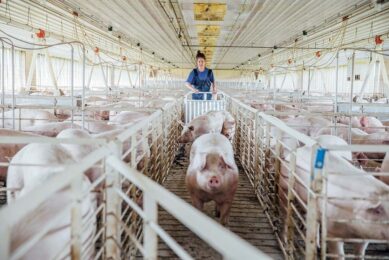Danish working on a new vaccine against L. intracellularis
The Danish veterinary institute DTU Veterinaerinstituttet is working on a new vaccine against Lawsonia intracellularis.
About DKK 3.8 million (€510,000) is allocated to the research to the bacteria, responsible for causing Proliferative Enteropathy, commonly known as ileitis. The disease is one of the major causes for diarrhoea – and would strongly be able to reduce the amount of antibiotics used.
Trials at the institute have shown that infected and cured pigs appear to be immune for the disease and also do not transmit it.
Immune responses
The project, led by Professor Gregers Jungersen, has characterised both the cell-mediated immune responses and antibodies in the infection.
The research mainly focuses on the difference in resistance between the animals that have never been infected and those who have built up resistance through an infection. The researchers hope to isolate the right proteins, which are crucial in resistance against L. intracellularis.
“Rather than a traditional test, we will apply the ‘reverse vaccinology’, where we using antibodies from protected pigs can identify the specific proteins in the bacterium, which has given the L. intracellularis-protected pigs immunity,” says Gregers Jungersen.
Knowledge of this protein will be the basis of the development of the novel vaccine.
Boehringer Ingelheim already has a vaccine against ileitis, called Enterisol Ileitis.
Related website:
• DTU Veterinaerinstituttet











